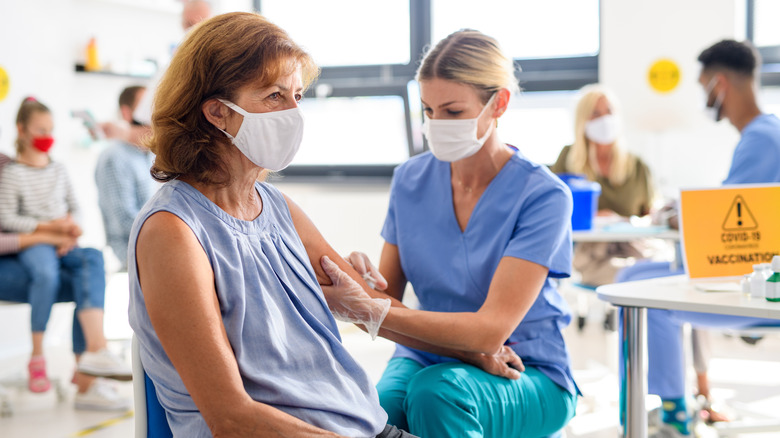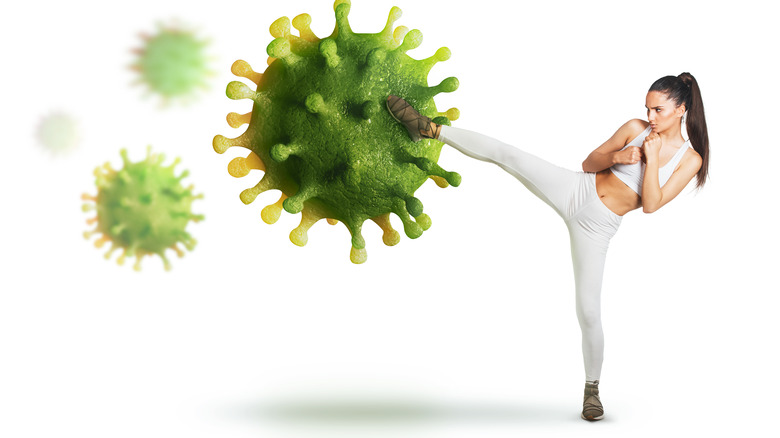Why You Only Need One Dose Of Some COVID Vaccines
When the United States approved the one-shot Johnson & Johnson/Janssen (J&J) vaccine for COVID-19, some people reacted with delight that they'd only have to get stuck with a needle once. Others, however, reacted with skepticism. The first two vaccines to be given emergency use authorization in the U.S. both require two doses to reach full efficacy. So why do you only need one dose of the J&J vaccine to be protected against severe cases of COVID-19?
The two-dose vaccines that have been given emergency use authorization by the U.S. Food and Drug Administration (FDA) are the Pfizer-BioNTech and Moderna vaccines. Both of these use the relatively new mRNA technology to deliver instructions for how to make a piece of the spike protein from the SARS-CoV-2 virus (via the Centers for Disease Control and Prevention (CDC)). The first dose of the two-dose vaccine series delivers the first round of instructions for making the spike protein.
Because dose number one of both the Pfizer-BioNTech and Moderna vaccines don't cause a strong immune response, they only offer a little over 50 percent protection at first (via UC Davis Health). This is because the first dose is training the body to recognize the virus, so the immune response is slower and the antibody level has to start from zero. When the second dose is administered, the immune system is already in good shape to fight off the virus. After a few more weeks, the vaccine is about 95 percent effective at preventing illness.
Immune systems react differently to vaccines
The J&J vaccine uses a common adenovirus to deliver the genetic instructions for how to get the SARS-CoV-2 spike protein made and into your body's cells (via The Conversation). The cells then take the instructions and are able to make spike proteins, which they can then "wear" on their surface. When your immune system sees these cells "wearing" the new spike proteins, they make antibodies to recognize and then fight off any future SARS-CoV-2 infections. Research has shown that the J&J vaccine has a 72 percent efficacy rate in the U.S.
When the creators of the J&J vaccine conducted clinical trials, they saw that subjects had a very strong immune response after only one dose of the virus (via the University of California San Francisco). This is because the antigen used in the J&J vaccine was optimized for T-cell and antibody responses (via Business Insider). Since the J&J vaccine only requires a single dose, it's easier to get people fully vaccinated since they won't have to make an effort to come back for a second shot. Unlike the Pfizer-BioNTech vaccine, the J&J vaccine does not require ultra-cold storage, and can simply be kept refrigerated for up to three months (via StatNews). And while each of the vaccines differ slightly, all of them afford important protection against hospitalization and death due to COVID-19.


